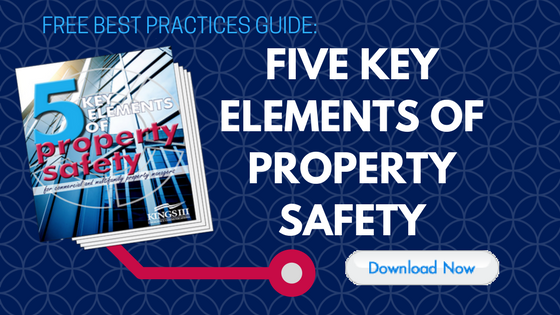How To Safely Deal With Vacant Properties
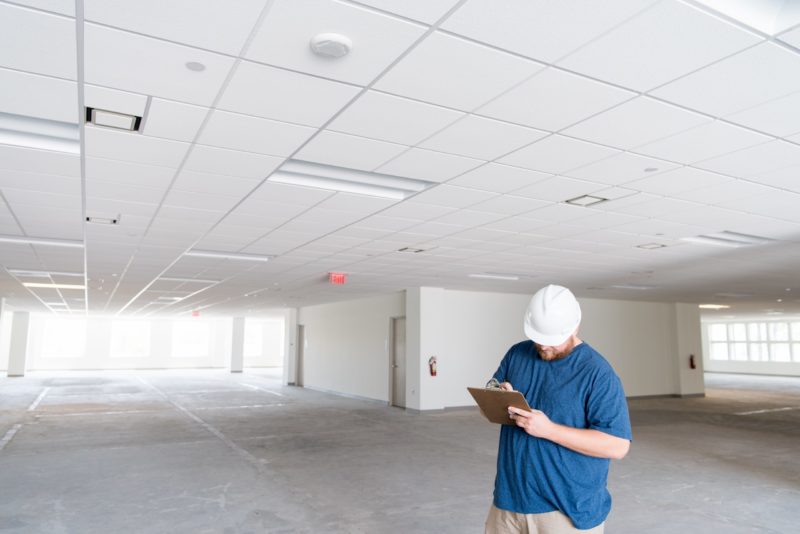
A vacant property does not mean less work for the property manager. In fact, sometimes it can add even more stress with extra property safety and maintenance items to consider. Follow these tips for a safer and more hassle-free property vacancy.
Vacant and abandoned properties are open invitations to criminals, vandals, squatters, trespassers, fires, rats and illegal activities. They can also be intriguing (and dangerous) to children.
In addition to their threat to community health and safety, they can also send a bad message: abandonment, disorder and a lowering of neighborhood standards.
Find out how to improve safety and reduce costs at your property
Our best-in-class emergency phone + monitoring solutions provide peace of mind and are backed by decades of expertise
Learn More
2024 ELLIES WINNER
Best Supplier -
Communication System
Of course, not all vacant properties become that way on purpose. Some run into a bout of hard luck, including foreclosures, court proceedings, estate settlements or heirs who don’t quite know what to do with them. However, no matter what the backstory may be, a vacant or abandoned building is usually not a welcome sight (or site).
The longer a property remains vacant, the more difficult it becomes to gain new tenants or owners, and the more expensive it becomes to keep the property value high. If the renovation costs exceed the falling property value, it can begin an irreversible fall, taking all the surrounding properties with it.
Download our free guide on the five key elements of property safety >>
Most people know a vacant or abandoned property when they see one, but even the U.S. Census Bureau has a hard time defining it. Their definition includes newly constructed units that have not yet been occupied. This does not include abandoned buildings.
The Vacant Properties Campaign defines abandoned properties as vacant residential, commercial and industrial buildings and lots that exhibit one or both of the following traits:
- The site poses a threat to public safety (meeting the definition of a public nuisance), or
- The owners or managers neglect the fundamental duties of property ownership (e.g., they fail to pay taxes or utility bills, default on mortgages, or carry liens against the property.)
- Vacant industrial properties (also known as brownfields) may have particular complications of redevelopment and clean-up associated with potential contamination on those properties.
Click here to learn more about how to protect yourself as a property manager on any type of property.
Keeping a vacant property safe, clean and free of vandalism are every property manager’s highest priorities. Here are just a few tips to keep in control of the situation while looking to repopulate the building:
Make it look like someone is there.
Use smart window shades and/or lighting that work on timers. Even fake TV and radio sounds within residential properties can reduce the likelihood of burglars or squatters. Park your car (or an associate’s car) in the driveway or in front of the property on frequent occasions. Don’t let the mail pile up — especially junk mail and flyers.
Install motion sensors.
Outdoor lights can include motion sensors that flick on when unwelcome visitors are on the premises. They can also make the property look and feel like someone is still there.
Continue a landscaping schedule.
Make sure the grass is mowed and the trees and bushes are trimmed. If a property looks abandoned on the outside, it will be assumed that it is vacant on the inside.
Conduct frequent inspections.
Just because the property is vacated doesn’t mean you should abandon it. Schedule periodic checks and inspections so that the property’s maintenance remains solid until it is in use again. This also gives you the opportunity to prevent or confront problems at the very start, before they fester and become real safety hazards.
Keep in touch with neighboring properties.
Those nearby your property will respect you if you care enough to show concern for it, even if you are not there. Give out your phone number for faster notification if there is trouble. If there is a nearby neighborhood watch, make sure to sign up.
Avoid attracting squatters.
As soon as a property becomes vacant, change the locks and inspect the property. If the building remains vacant for an extended period of time, as part of your inspection, look for signs of life that shouldn’t be there: broken or open windows, food crumbs, ants, trash, sleeping bags, clogged toilets or sinks.
Contact your insurance company.
In many cases, if someone is harmed or injured on a vacant property, the finger could still point back to you. Stay in touch with your insurance provider and prove to them that you are still conducting your property management responsibilities while the property remains vacant. Ask about unoccupied property insurance.
Install emergency communications and monitoring devices.
If you or someone in the area happens upon trouble in or near your vacant building, make sure that help is just a call button away. In some areas, such as elevators or pools (depending on the state you are in), these are required, so it is an essential aspect of keeping your building code compliant, even during its time of vacancy. Furthermore, a property that readily appears safe and offers means to help is less likely to stay vacant for long. Emergency communications solutions employ dedicated, trained staff that can get you the help you need 24/7/365. Kings III emergency operators are trained in a higher level of certification than is often required in 911 emergency response centers, preparing them to respond to any emergency call, and can provide aid to callers in over 175 languages.
Kings III’s all-inclusive services provide you with the option of a complete package of code compliant emergency telephone equipment, installation and maintenance, plus 24-hour state-of-the-art monitoring and dispatch services.
Keep your emergency contact information constantly updated.
Always have the most up-to-date contact information for your emergency call list. Our account information update form lets Kings III customers take care of this ahead of time.
Managing a vacant property can often be stressful but taking precautions like these can make a huge difference in keeping the building safe and appealing until it is once again occupied. To learn more about how Kings III can increase the safety and value of your facility, visit www.kingsiii.com.
CATEGORIES TAGGED
ELEVATORS
PROPERTY SAFETY
CATEGORIES
KEEP LEARNING
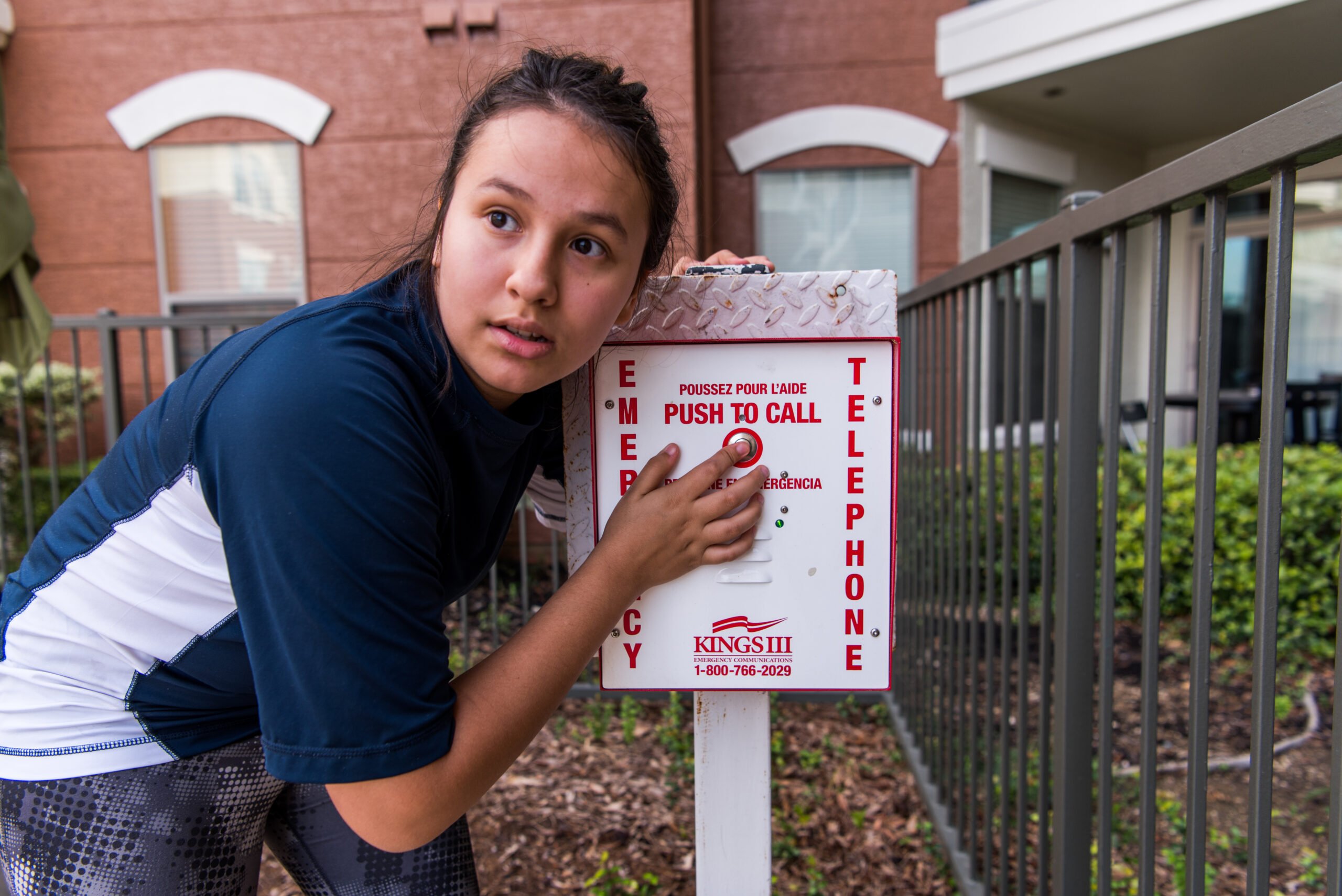
Is Your Pool’s Emergency Phone Compliant? Here’s How to Check (And What to Do If It Isn’t)
Is your pool’s emergency phone truly compliant and ready when it matters most? A reliable, code-compliant emergency phone is more than a regulatory requirement—it’s a critical lifeline that ensures immediate access to help during emergencies. This guide walks you through how to check compliance, properly test your phone, and take the right steps if it doesn’t meet current standards. Whether you're ensuring your current system is up to code or exploring a more dependable solution, we’ll help you navigate the process and safeguard both safety and liability.

8 Women Who Shaped the Future of Emergency Response & Dispatch
This Women’s History Month, Kings III is honoring the women who have paved the way in emergency response and dispatch. From breaking barriers in EMS to pioneering advancements in emergency communication, these trailblazers have helped shape the way lifesaving services operate today. See eight influential women whose contributions continue to impact the field and inspire future generations.

Honoring Black Pioneers: 7 Influential Figures in Emergency Communications & Response
This Black History Month, Kings III is honoring Black men and women who served as pioneers in the fields of emergency dispatch and emergency response. See 7 influential trailblazers who broke barriers, advanced life-saving technologies, and shaped the way emergency services operate today.

How Recent Spikes in Copper Theft Threaten Your Emergency Communication & What You Can Do About It
Rising copper theft is putting emergency communication systems at risk, leading to potential service outages. Without a reliable backup, property managers may face compliance issues and safety concerns. Learn more about the threat and how a cellular solution can help protect your property.

Is Your Hotel’s Emergency Communication System Up to Code?
Hotel emergency communication systems must meet strict safety and compliance standards, but are yours up to code? From elevator phones to pool and parking lot emergency call systems, we break down key requirements and how to ensure your property stays compliant.

Kings III & Wurtec Partner to Improve the Emergency Communication Market of Elevator Video Messaging Systems
Kings III Emergency Communications partners with Wurtec to enhance elevator video messaging systems, addressing new code requirements for two-way displays and video monitoring. The collaboration combines Kings III's emergency response expertise with Wurtec's industry solutions to provide streamlined, compliant elevator safety communications nationwide.
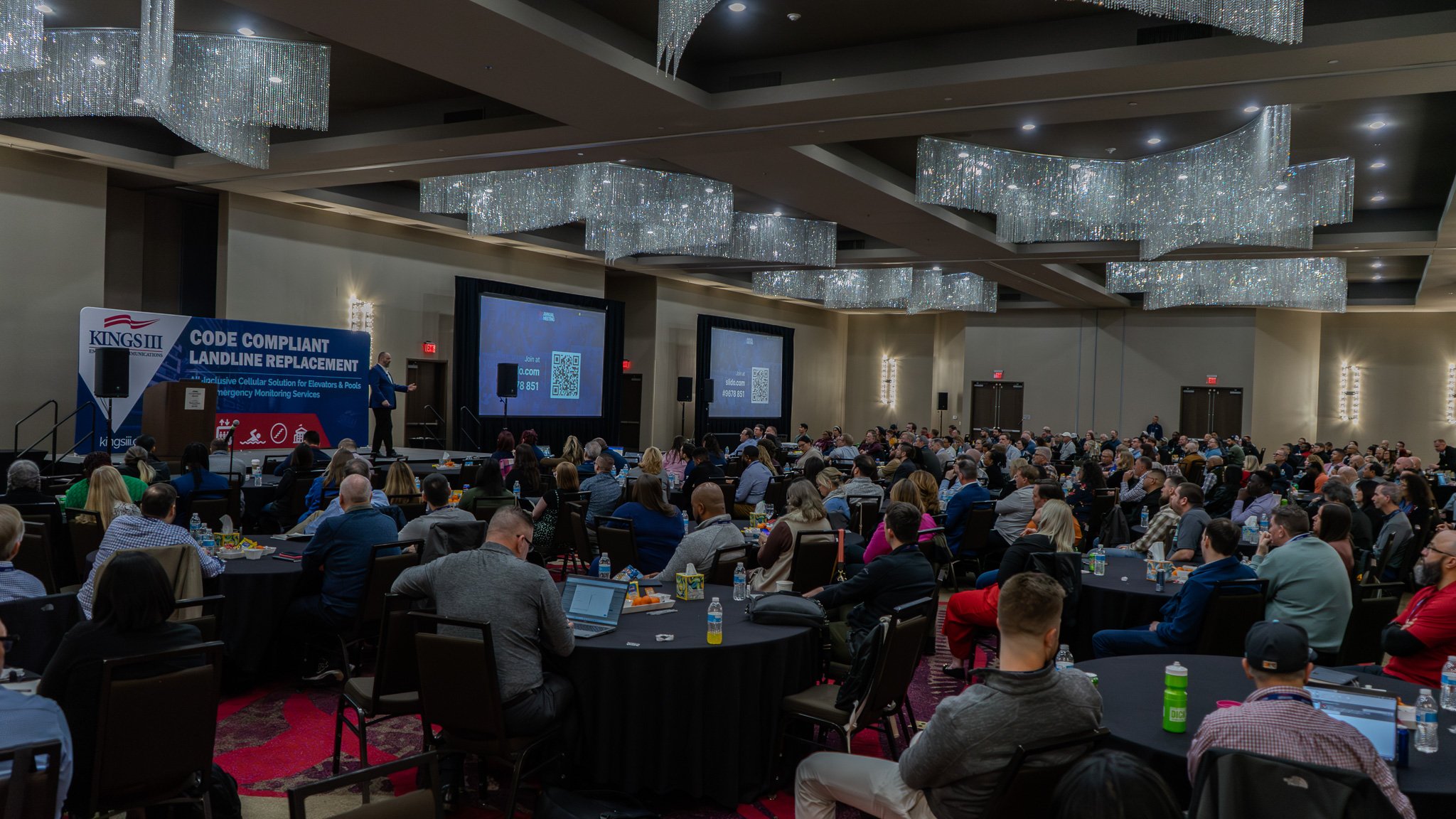
Kings III Makes Dallas Morning News’ ‘Top 100 Places to Work’ List, Marking 5th Consecutive Award
We're honored to be recognized by our employees and The Dallas Morning News by making the daily newspaper’s Top 100 Places to Work list for the 5th year in a row, falling in at 32nd in the midsize companies category.
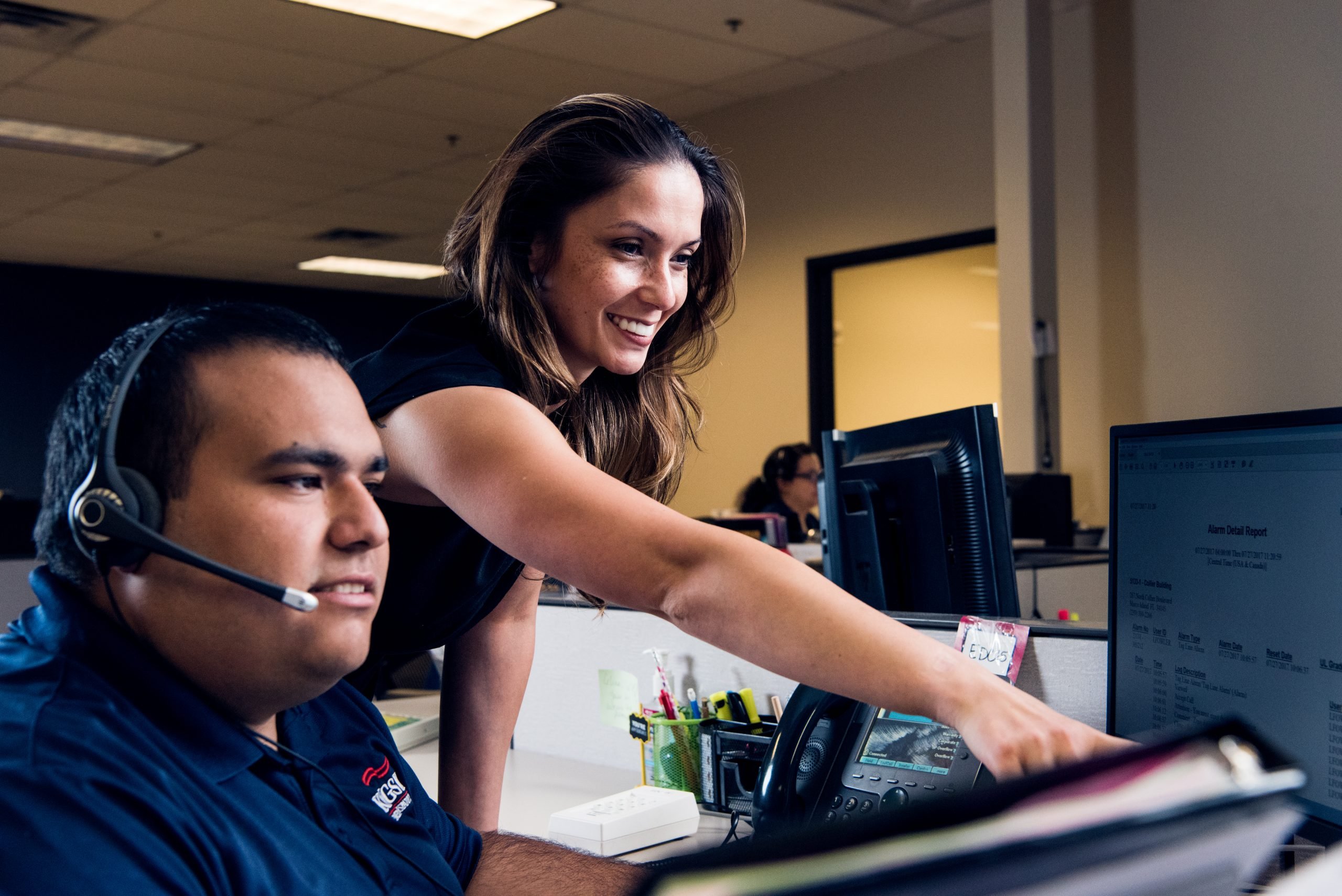
Updated Elevator Code: Who are my Authorized Personnel?
Confused about who qualifies as "authorized personnel" under the new ASME 17.1 elevator code? Learn why the same authorized staff must monitor all emergency communications—audio, video, and messaging—and why split monitoring solutions won't meet compliance requirements for your building's safety system.

2024 Brings Increased Adoption of Codes Requiring Video and Two-Way Messaging for Elevator Communications
As 2024 progresses, the adoption of safety codes mandating video and two-way messaging capabilities for elevator communications is gaining momentum across the United States.


